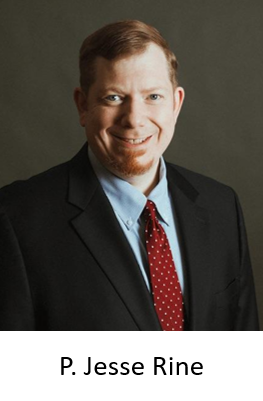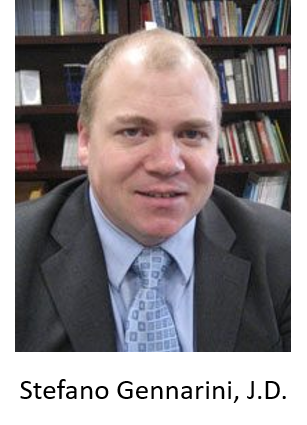Education Briefs
Attention deficit hyperactivity disorder (ADHD) may not have a biological basis after all, admits Dutch neuroscientist, Martine Hoogman, who convinced the world years ago that it was a bonafide brain disorder. After untold millions of children and adults have been treated with powerful drugs in the name of ADHD for nearly 40 years, we are learning that the malady may not actually exist. As Blaze Media reported, writer-broadcaster Paul Tough wrote in New York Times Magazine  April 12-13 that prescriptions “to remedy imagined ADHD have skyrocketed — by 58% between 2012 and 2022.” According to the CDC, “an estimated 7.1 million American children (approximately 1 in 9) aged 3-17 had ADHD diagnoses as of 2022, up from two million in the mid-1990s. Over half of the children currently diagnosed with ADHD receive at least one ADHD medication.” These psychotropic drugs — among them the popular Ritalin and Adderall — cause significant side effects as well as addiction, some of which are serious and long-term. In her about-face, Hoogman told Tough: “Back then, we emphasized the differences that we found (although small), but you can also conclude that the subcortical and cortical volumes of people with ADHD and those without ADHD are almost identical.” British researcher Edmund Sonuga-Barke, told Tough: “I’ve invested 35 years of my life trying to identify the causes of ADHD, and somehow we seem to be farther away from our goal than we were when we started ... We have a clinical definition of ADHD that is increasingly unanchored from what we’re finding in our science.” Of course, Phyllis Schlafly could have set them straight 25 years ago when she shrewdly noted: “The pediatric guidelines for diagnosing ADHD are all subjective; e.g., often has difficulty awaiting turn, occasionally may do things compulsively, easily distracted from tasks, fails to give close attention to details, makes careless mistakes. With such non- scientific behavioral criteria, it’s no wonder we hear that extraordinary numbers of children are accused of having ADHD.” Perhaps Robert F. Kennedy Jr., at the helm at HHS, will stop the needless drugging of children and fewer lives will be ruined.
April 12-13 that prescriptions “to remedy imagined ADHD have skyrocketed — by 58% between 2012 and 2022.” According to the CDC, “an estimated 7.1 million American children (approximately 1 in 9) aged 3-17 had ADHD diagnoses as of 2022, up from two million in the mid-1990s. Over half of the children currently diagnosed with ADHD receive at least one ADHD medication.” These psychotropic drugs — among them the popular Ritalin and Adderall — cause significant side effects as well as addiction, some of which are serious and long-term. In her about-face, Hoogman told Tough: “Back then, we emphasized the differences that we found (although small), but you can also conclude that the subcortical and cortical volumes of people with ADHD and those without ADHD are almost identical.” British researcher Edmund Sonuga-Barke, told Tough: “I’ve invested 35 years of my life trying to identify the causes of ADHD, and somehow we seem to be farther away from our goal than we were when we started ... We have a clinical definition of ADHD that is increasingly unanchored from what we’re finding in our science.” Of course, Phyllis Schlafly could have set them straight 25 years ago when she shrewdly noted: “The pediatric guidelines for diagnosing ADHD are all subjective; e.g., often has difficulty awaiting turn, occasionally may do things compulsively, easily distracted from tasks, fails to give close attention to details, makes careless mistakes. With such non- scientific behavioral criteria, it’s no wonder we hear that extraordinary numbers of children are accused of having ADHD.” Perhaps Robert F. Kennedy Jr., at the helm at HHS, will stop the needless drugging of children and fewer lives will be ruined.
A new college guide from the Center for Academic Faithfulness & Flourishing (CAFF) is designed to help students and their families choose an authentic Christian college or university. Prospective students can access the guide free of charge on the CAFF website. A marketing email promises “just trustworthy information”  rather than scores and rankings, and explains that the guide presents “a fully searchable, one-stop shop” for comparing Christian college options. CAFF states that its intuitive online directory gives “just the facts” on over 250 colleges and universities across the country so families can make the best decisions for their children’s future. CAFF was founded in 2023 to address the need to strengthen truly Christian higher education. Its mission is “to empower Christian colleges and universities to advance their faith-based missions, equip campus leaders with the resources necessary to flourish in our present age, and encourage broader support for these unique and valuable institutions.” The organization points out that, while “America’s oldest institutions of higher education were founded by Christian denominations, few have maintained their original religious character.” The group acknowledges that the moral degradation of our “cultural moment” have made the waters Christian colleges must navigate ever more treacherous, but that “authentically Christian higher education enriches society and should be preserved for future generations.” CAFF promises to identify and address challenges to the fidelity of Christian higher education, and to “connect churches, families, donors, and industry leaders with institutions that have endured in their founding missions.” The organization’s executive director is Professor P. Jesse Rine, Ph.D., a nationally recognized expert on Christian higher education, who has held faculty and administrative roles on Grove City College, Duquesne University, and North Greenville University. Its 10-member advisory board represents a variety of states across the country.
rather than scores and rankings, and explains that the guide presents “a fully searchable, one-stop shop” for comparing Christian college options. CAFF states that its intuitive online directory gives “just the facts” on over 250 colleges and universities across the country so families can make the best decisions for their children’s future. CAFF was founded in 2023 to address the need to strengthen truly Christian higher education. Its mission is “to empower Christian colleges and universities to advance their faith-based missions, equip campus leaders with the resources necessary to flourish in our present age, and encourage broader support for these unique and valuable institutions.” The organization points out that, while “America’s oldest institutions of higher education were founded by Christian denominations, few have maintained their original religious character.” The group acknowledges that the moral degradation of our “cultural moment” have made the waters Christian colleges must navigate ever more treacherous, but that “authentically Christian higher education enriches society and should be preserved for future generations.” CAFF promises to identify and address challenges to the fidelity of Christian higher education, and to “connect churches, families, donors, and industry leaders with institutions that have endured in their founding missions.” The organization’s executive director is Professor P. Jesse Rine, Ph.D., a nationally recognized expert on Christian higher education, who has held faculty and administrative roles on Grove City College, Duquesne University, and North Greenville University. Its 10-member advisory board represents a variety of states across the country.
The U.S. took a strong stand against gender ideology in a first-ever event of its kind at the United Nations, sponsored by the U.S. Mission to the UN and co-sponsored by the pro-life organization C-Fam and The Heritage Foundation. The panel event featured speakers who oppose the radical gender agenda, beginning with acting U.S. Representative to the Economic and Social Council, Jonathan Shrier, who oversees the U.S. Mission’s work on social issues.  Shrier emphasized the Trump Administration’s commitment to protecting “the great American values of family, truth, well-being, and freedom” and its opposition to policies that “seek to erase the category of sex and the unique characteristics that define women as female and men as male.” He noted that this includes “preserving the integrity of women’s spaces, from our schools to our sports, and ensuring that biological males do not infringe upon the rights of women and girls.” The Heritage Foundation’s Jay Richards, Ph.D., “described gender ideology as an unprecedented movement in human history that denies the category of sex as an ‘observable’ characteristic.” Detransitioner Maia Poet, who was living as a male from the age of 12, told attendees that she was “shaken into confronting the reality of her womanhood by the October 7, 2023, terrorist attacks by Hamas in Israel.” Poet is now a passionate defender of the right of young people to be free “from harmful trans ideology.” Another speaker, Erin Friday, described her successful fight to rescue her daughter, who was “drawn into the transgender movement by the public-school system without her knowledge, and the challenges she faced throughout the ordeal.” Finally, C-Fam’s Executive Vice President for Legal Studies, Stefano Gennarini, said international human rights law “assigns parents the primary responsibility for the development and wellbeing of their children, as well as the right to direct their children’s education.” He said this [law] was “deliberate” in order to “counter the possibility that state-run education systems may be used once again to control entire populations and indoctrinate them, pitting children against parents, and even denouncing them when they are not loyal to government-backed ideologies, as was the case under the Nazi and Communist regimes.”
Shrier emphasized the Trump Administration’s commitment to protecting “the great American values of family, truth, well-being, and freedom” and its opposition to policies that “seek to erase the category of sex and the unique characteristics that define women as female and men as male.” He noted that this includes “preserving the integrity of women’s spaces, from our schools to our sports, and ensuring that biological males do not infringe upon the rights of women and girls.” The Heritage Foundation’s Jay Richards, Ph.D., “described gender ideology as an unprecedented movement in human history that denies the category of sex as an ‘observable’ characteristic.” Detransitioner Maia Poet, who was living as a male from the age of 12, told attendees that she was “shaken into confronting the reality of her womanhood by the October 7, 2023, terrorist attacks by Hamas in Israel.” Poet is now a passionate defender of the right of young people to be free “from harmful trans ideology.” Another speaker, Erin Friday, described her successful fight to rescue her daughter, who was “drawn into the transgender movement by the public-school system without her knowledge, and the challenges she faced throughout the ordeal.” Finally, C-Fam’s Executive Vice President for Legal Studies, Stefano Gennarini, said international human rights law “assigns parents the primary responsibility for the development and wellbeing of their children, as well as the right to direct their children’s education.” He said this [law] was “deliberate” in order to “counter the possibility that state-run education systems may be used once again to control entire populations and indoctrinate them, pitting children against parents, and even denouncing them when they are not loyal to government-backed ideologies, as was the case under the Nazi and Communist regimes.”
Want to be notified of new Education Reporter content?
Your information will NOT be sold or shared and will ONLY be used to notify you of new content.
Click Here
Return to Home Page
